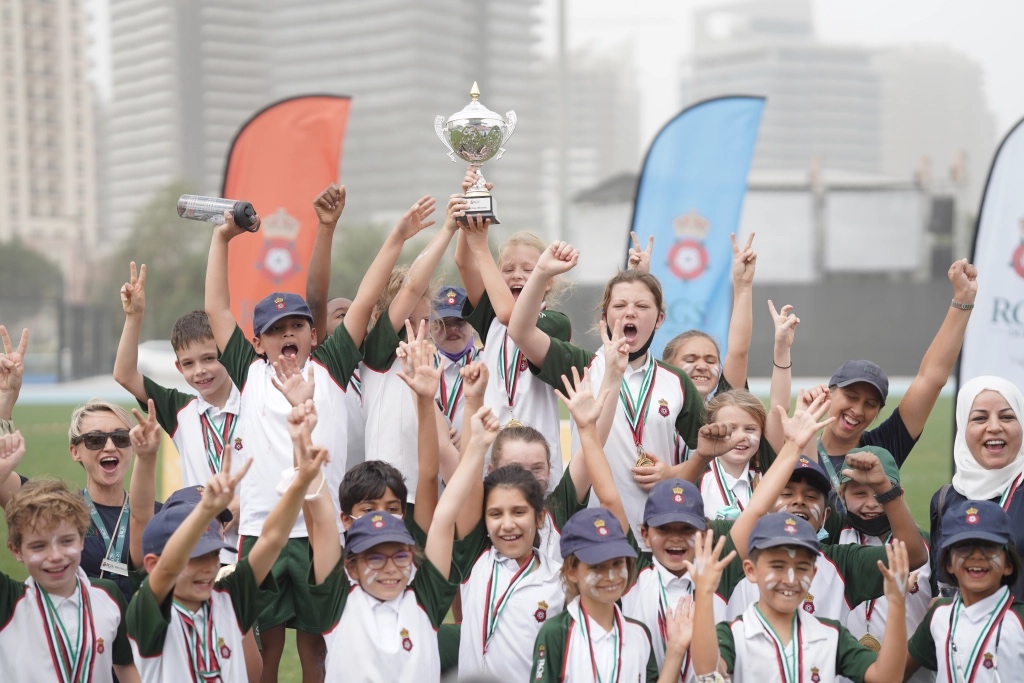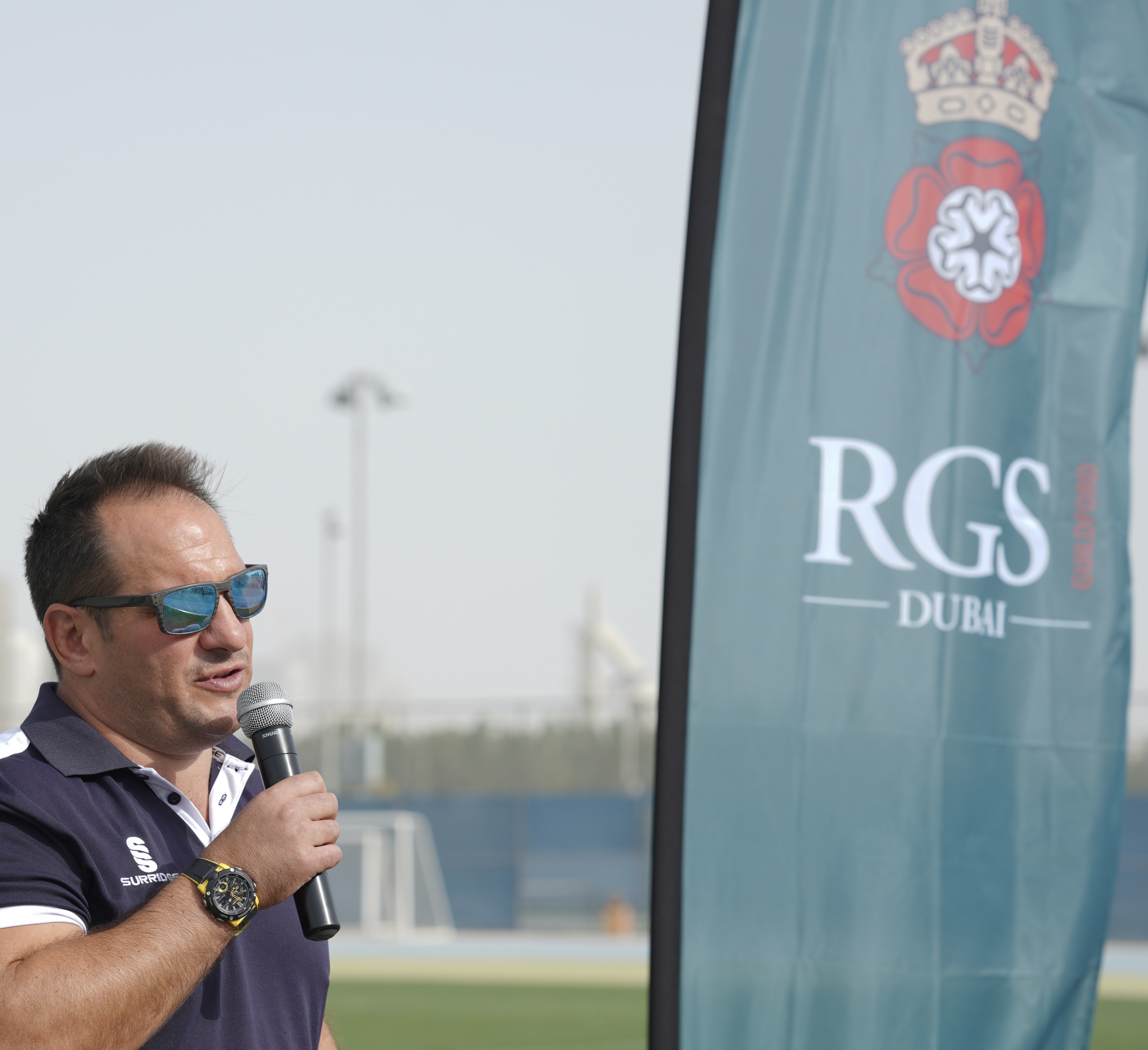March 11, 2022
Benefits of sports in the British Curriculum

The Benefits of Sports in the British Curriculum
When you think of school life, it’s almost impossible to imagine it without sporting activity as part of the culture and curriculum. Sports days, school teams, fixtures and competitions are some of the most fantastic experiences a child could have in school.
What parent wouldn’t want their child to have these experiences? Sports are a wonderful way of getting your child regular exercise in school, ensuring that they’re healthy and engaged. At RGS Guildford Dubai, a fundamental aim is to reinforce the fun and social opportunities offered through participation within sport! This is the main reason why Physical Education (PE) and sports are so key as part of the British Curriculum, and why so many British schools offer a selection of sports as Extra Curricula Activities (ECA’s for their pupils).
How is Physical Education Implemented in the National Curriculum?
The British Curriculum has PE as a fundamental part of schooling from Key Stage 1 onwards. According to the Department for Education, the purpose of the PE curriculum is to “ensure that all pupils develop competence to excel in a broad range of physical activities, are physically active for sustained periods of time, and engage in competitive sports and activities to help lead healthy, active lives.”
The implementation of the curriculum varies across each Key Stage, with different achievement targets and instructional mandates. These link closely to the RGS learning habits, which include reflection, perseverance engagement and aspiration, all of which should be targeted within a sporting environment. Indeed, the longstanding values of the RGS which include integrity, respect and inclusivity also collaborate closely with each Key Stage target.
Key Stage 1
In Key Stage 1, at the very beginning of the PE curriculum, students are primarily taught how to master core fundamental movements and gross motor skills. These include:
- Running
- Jumping
- Throwing and catching
- Balancing
- Agility skills
- Hand-eye coordination
The above skills are also intertwined within in team games, where children learn how to engage in competition with others and themselves, as well as developing basic team tactics for attacking and defending.
Key Stage 2
In Key Stage 2, in addition to the above the skills taught are broadened, and formal competitive games such as basketball, cricket, football, and badminton may be taught at the discretion of the school. Pupils are taught how to improve in various sports, learn from their success and improvements, and better learn how to be part of a team.
Key Stage 3
By Key Stage 3, the basics should have been fully taught, and pupils now learn how to become more confident and competent – in more complex techniques. In this Key Stage, pupils also learn the benefits of physical activity, and their confidence is developed for further sports and exercise not just in school, but also outside of school life.
Pupils are also called to be more competitive in Key Stage 3, directly challenging opponents in a variety of sports, and participating in competitive activities, both in clubs and outside school communities.
The Benefits of Sports Within Schools
Of course, the first benefit that comes to mind is physical fitness and health. Having these in school has become especially important in the wake of the COVID-19 pandemic, when many pupils spent large amounts of time at home with limited physical activity. Physical fitness in school helps children get that access to sports and physical development. It provides an encouraging environment for pupils to learn ‘how and why’ fitness is beneficial. Studies have also shown that sports confer many benefits for behaviour and emotional health and can support the development of social skills and social behaviors, self-esteem, and, in certain circumstances, academic and cognitive development. Sports provide the opportunity for pupils to learn how to collaborate effectively, especially in competitive environments, which can greatly complement the kind of teamwork that is taught in school group projects.
Sport at RGS Guildford Dubai: Contributing to More Well-Rounded Pupils
At RGS Guildford Dubai, we offer a rounded PE curriculum, allowing pupils to explore a wide range of sporting topics that include invasion games, striking and fielding, net games, as well as expressive arts.
Within the Games Curriculum the PE department also organise an array of sporting events, fixtures and challenges for children of all abilities to enjoy. As with the RGS Guildford UK, our aim is to develop a high level of pride and enthusiasm for representing the school at any level, in a number of varying sporting topics and events.
Mr James Bennett
Director of Sport, Royal Grammar School Guildford Dubai

